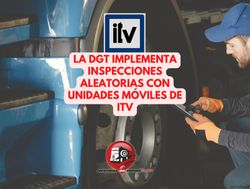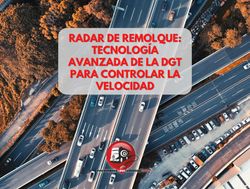The Civil Guard introduces remote control of tachographs in trucks
The Civil Guard has taken an important step in improving surveillance of the road transport sector by acquiring 30 remote control devices for tachographs. These new devices will allow the authorities to monitor the activities of truck drivers more efficiently and remotely, with the aim of improving road safety and ensuring compliance with labour and transport regulations.
In this article, we will analyse how these devices work, what implications they have for transporters and the sector, and how they will affect the management of driving and rest time for truck drivers. This technology is being implemented in response to the growing need for supervision in a vital sector for the economy, where fatigue at the wheel and non-compliance with regulations can have serious consequences.

The tachograph is a mandatory device on most freight vehicles that records driver activity, including driving hours, rest periods, speed and other relevant data. These records are essential to ensure that drivers comply with European regulations that limit continuous driving hours and require regular breaks.
For many years, authorities have relied on physical inspections of trucks to verify correct use of the tachograph, which involved stopping the vehicle and manually reviewing the data. However, with the advent of new remote control devices, this process has become more efficient.
The new devices acquired by the Civil Guard allow officers to carry out remote controls, without having to stop the vehicle. These devices, technically known as "second-generation smart tachographs", emit a signal that can be picked up by the authorities while the truck is moving. Using this signal, data can be received in real time about possible manipulations or violations.
The interesting thing about this system is that it does not replace traditional inspections, but rather complements them. If a vehicle is detected with irregularities, the agents can decide to stop it for a more detailed inspection. In this way, the controls are more precise, faster and less invasive for those transporters who comply with the law.
In addition, these devices help to detect cases of manipulation or falsification of tachographs more quickly, a recurring problem in the sector. Remote control not only allows for identifying violations, but also for acting more quickly in dangerous situations on the road.
The main objective of this measure is to improve road safety and reduce accidents related to driver fatigue. According to several studies, excessive driving hours are one of the main causes of accidents in the transport of goods. With these devices, the authorities will be able to detect more easily when a driver has exceeded his permitted driving hours, which will allow risky situations to be prevented.
On the other hand, this new technology also has a positive impact on the protection of drivers' labour rights. Respect for rest times is essential for their well-being and health, and with this system it will be more difficult for companies or drivers themselves to falsify records.
Penalties for non-compliance with driving and rest time regulations can be severe, both for companies and drivers, so this new technology reinforces the need to strictly comply with the regulations.
From the point of view of hauliers, the new devices represent a significant change in the way controls are carried out. Although the technology is designed to improve safety, some hauliers may feel that they are under constant surveillance. However, experts point out that those who comply with the regulations will have nothing to fear, and that the system is designed to be fair and efficient.
In the long term, these devices may also have an impact on the competitiveness of the sector. Companies that respect labour and transport regulations will find that their competitors' bad practices (such as manipulating the tachograph to work longer hours) will become increasingly difficult to carry out, which can balance the market and encourage fairer competition.
The implementation of these remote control devices falls within the framework of European Union regulations that seek to harmonise the control of freight transport in all member states. Current regulations require that all new freight transport vehicles over 3.5 tonnes be equipped with smart tachographs.
These second-generation smart tachographs not only record driver activity, but can also transmit data remotely and securely, facilitating the work of authorities and reducing disruptions to the work of transporters. This is a clear example of how technology can be used to improve safety and efficiency in the transport sector.
The acquisition of these remote control devices by the Civil Guard marks a turning point in the way in which compliance with transport regulations is monitored in Spain. This measure is in line with international trends that are betting on digitalisation and the use of technology to improve road safety and guarantee fair working conditions.
Over time, we are likely to see even greater adoption of this type of technology, not only in tachograph control, but also in other aspects of traffic and transport management. Smart cameras, section-based speed control systems and digital fleet management platforms are just some of the tools that are revolutionising the sector.
The acquisition of 30 remote tachograph control devices by the Civil Guard represents a significant advance in the supervision of freight transport in Spain. These devices not only improve road safety by allowing more effective monitoring of driving and rest time, but also protect drivers' labour rights, ensuring that regulations are strictly enforced.
While technology may cause some concern among some transporters, the benefits in terms of safety and equity in the sector are undeniable. The future of transport is increasingly linked to digitalisation and the adoption of technological tools that not only make work more efficient, but also safer for everyone.
This is an opportunity for transport companies to adapt and evolve along with technology, ensuring a safer and more competitive service in an increasingly regulated market.






Receive our news